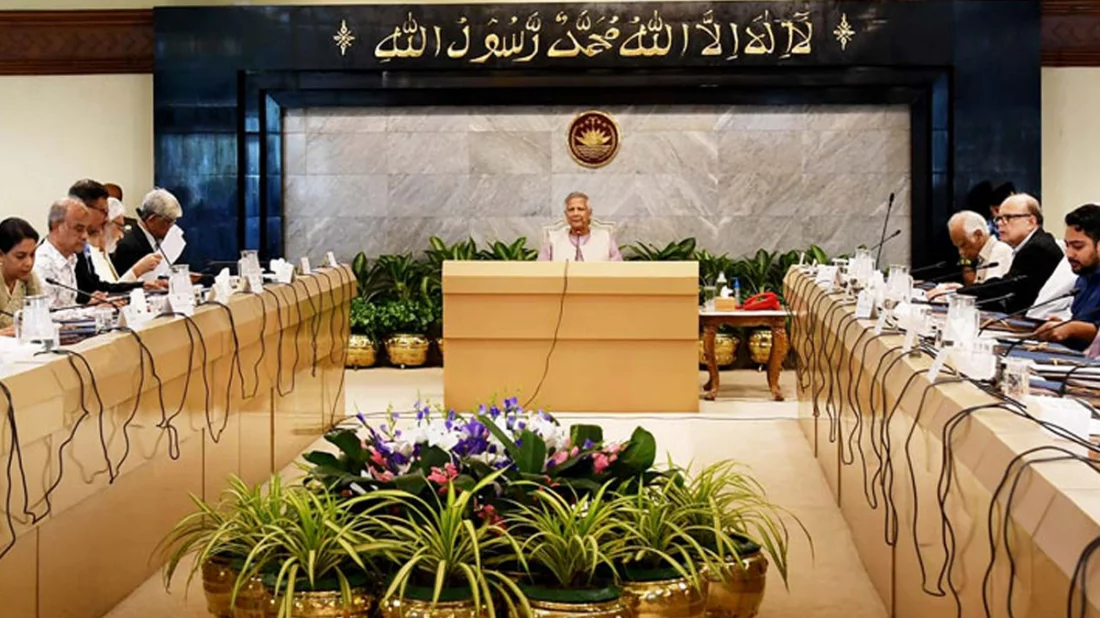Interim Govt to scrap Cyber Security Act

The interim government has decided in principle to repeal the widely condemned Cyber Security Act (CSA), said Environment, Forest and Climate Change Adviser Syeda Rizwana Hasan.
The Advisory Council on Thursday at a meeting chaired by Chief Adviser Prof Muhammad Yunus at his office in Dhaka's Tejgaon, decided to cancel the controversial law enacted by the ousted Awami League (AL) regime.
After a meeting of the Advisory Council last week, Post, Telecommunication and Information Technology Adviser Nahid Islam said the CSA would be repealed within a week. "All the cases filed under this law will be withdrawn."
Not only CSA but all such laws that create barriers to the expression of opinion are being reviewed, he had said.
Earlier, on October 3, Law Adviser Asif Nazrul had also said that this law must be repealed. "That is the direction we [the law ministry] will follow. We will decide after consulting with experts whether to repeal the entire law or only the parts concerning 'speech offences' (freedom of expression). However, this law will definitely be repealed."
He added, "When this law is repealed and a new law is enacted, the approach will be to provide protection and safeguard citizens. There will definitely be protections for women, children, and sensitive issues in society."
Officials familiar with the matter recently told The Business Standard that the ICT Division would present the draft "Cyber Security Act (Repeal) Ordinance, 2024" for in-principal approval at the Advisory Council's meeting today. Details and status of the draft ordinance are yet to be known.
Human rights activists across the country and abroad have criticised the CSA as a tool for the AL regime to crack down on descent on online platforms and restrict freedom of expression.
As of August, a total of 5,818 cases filed under the CSA and its predecessors - the Information and Communication Technology Act and the Digital Security Act (DSA) - were pending in the country's eight cyber tribunals, according to a law ministry press release issued on 30 September.
Currently, there are a total of 1,340 cases related to speech offences – of which, 461 cases are being probed by the investigating agencies and 879 cases are pending in the eight tribunals across the country.
Among these cases, cases filed over the expression of free speech on digital platforms are classified as "speech offences" and those over fraud through computer hacking or other digital devices are classified as "computer offences".
Among those related to speech offences, 279 cases are pending under the ICT Act, 786 under the DSA, and 275 cases under the CSA, according to the press release.
The release further said the government has decided to quickly withdraw the 870 speech offence cases through coordination between the Ministry of Law and the Ministry of Home Affairs. The investigating officers were also instructed to quickly submit their final reports in the 461 such cases for quick disposal.
After the interim government took over, many accused in cases filed under the draconian laws were granted bail and efforts are being made to repeal such laws.
The fallen AL regime is accused of using the ICT Act, the DSA and the CSA to crack down on journalists, political opponents and other dissidents.
The CSA's original predecessor, the ICT Act was introduced in 2006 during the regime of the four-party alliance.
During the AL-led government, the ICT Act was amended and a more stringent version of it - the Digital Security Act 2018 - was enacted.
Under Article 32 of the DSA, cases were filed against those with opposing views and news online under the non-bailable section.
The United States, the European Union, and other human rights organisations have called for repealing Article 32 of the DSA.
In the face of pressure, the Awami League government repealed the law and enacted the Cyber Security Act 2023.




